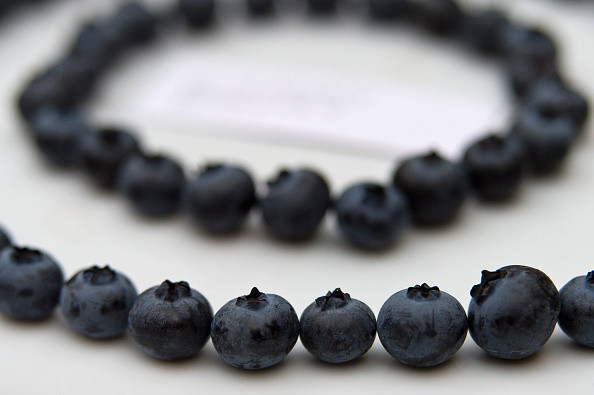Juicing, gluten free and bright berries: Dietary fad or healthy diet?
While a diet rich in fruit and veggies appears to be good for the heart many dietary fads should be avoided.
Scientists have spoken against a number of dietary fads that bring no health benefits to the heart. They caution that diets should be based on robust, evidence-based data and not on "hypes and controversies".
Cardiovascular diseases are the leading cause of death worldwide – in 2012 they represented 31% of all deaths globally. Poor cardiovascular health is associated with older age, so there are concerns that rates of cardiovascular mortality will continue increasing in coming years.
However, the World Health Organisation estimates that most cardiovascular diseases could be prevented by addressing behavioural risk factors such as tobacco use, unhealthy diet and obesity.
When it comes to healthy eating, many different foods and dietary patterns have been presented as having potential cardiovascular benefits, although the way they produce their protective effects isn't always completely understood.
To help doctors and their patients make sense of the most popular foods and dietary patterns that are promoted for cardiovascular health and establish which ones are fads, scientists have published a special report on the subject in the Journal of the American College of Cardiology.
The main findings are listed below, and suggest that an optimal diet for the heart may be a predominantly plant-based diet with green, leafy vegetables, whole grains, legumes and fruits.
Eggs and cholesterol
The idea that dietary cholesterol - cholesterol that is found in food such as eggs - raises blood cholesterol (and thus the risk of heart disease) has been around for some time, but there is still no scientific consensus on this issue.
In this new research, researchers have analysed 17 studies with 556 subjects that evaluated different amounts of dietary cholesterol from eggs, and concluded that an additional100 mg/day of dietary cholesterol was predicted to increase total cholesterol by 2.17 mg/dl of blood and low-density lipoprotein-cholesterol (an important marker of the risk of developing heart disease)by 1.93 mg/dl.
US guidelines issued in 2015 dropped specific recommendations about upper limits for cholesterol consumption, and UK dietary guidelines don't recommend cholesterol restrictions, but based on these findings, this review concludes that "it remains prudent to advise patients to significantly limit intake of dietary cholesterol in the form of eggs or any high cholesterol foods to as little as possible".

Vegetable oils
There has recently been a number claims in studies and in the media of documented health benefits of tropical oils, such as coconut oil. The review shows that these claims are not based on solid evidence and their use should be discouraged because of the limitations of data supporting routine use.
Liquid vegetable oils, such as olive oil, appear to be beneficial and to decrease low-density lipoprotein-cholesterol (LDL-C). "The evidence base for olive oil is the most comprehensive, with clear evidence for a benefit in cardiovascular risk reduction", the scientists say.
Berries and brightly coloured veggies
Anthocyanins are antioxidants that have potent anti-inflammatory properties which contribute to lowering the risk of heart disease. They are highly concentrated in blueberries, strawberries, raspberries, red cabbage, red radishes, and aubergines.
This paper confirms that fruits and vegetables, especially those rich in anthocyanins, are the healthiest and most beneficial source of antioxidants for cardiovascular risk.

Antioxidant supplementation
While fruits that contain antioxidants are beneficial for the health, the review finds no significant evidence that taking supplementation changes anything for patients. Neutral or even negative results were found in many studies dealing with the subject.
Nuts
Nuts can be well integrated in a heart-healthy diet. Large prospective studies have examined nut consumption and cardiovascular diseases with interesting results. Six studies in particular have reported a consistent protective effect of nut consumption on cardiovascular disease outcomes.
However, the evidence for protection against strokes remains inconsistent. The reviews caution against consuming too many nuts, because they are high in calories and can cause weight gain eaten in great quantities.
Juicing
This is one of the latest, most popular dietary trend and while there is no doubt that fruits are good for the heart, the problem is that juicing them concentrates calories - which makes it is much easier to ingest too many.
It is also important that people don't add too much extra sugar to their juices. Overall, scientific evidence suggests that eating fruits and vegetables whole rather than juiced may be better to promote health of your heart.

Gluten-free diets
There is no doubt that gluten-free diets are crucial to the health and well-being of people who suffer from celiac disease, a wheat allergy or gluten sensitivity.
However, the research overwhelmingly suggests that for everyone else there are no health benefits to be derived from going gluten-free, even though many people advertise this as a way to lose weight. "Many of the claims for health benefits are unsubstantiated", the researchers conclude.
© Copyright IBTimes 2025. All rights reserved.






















